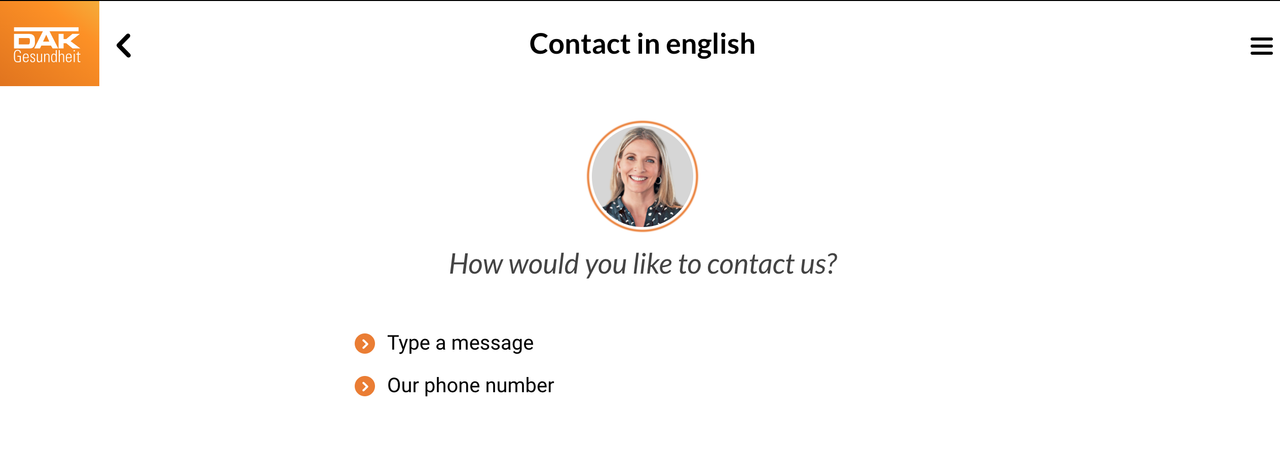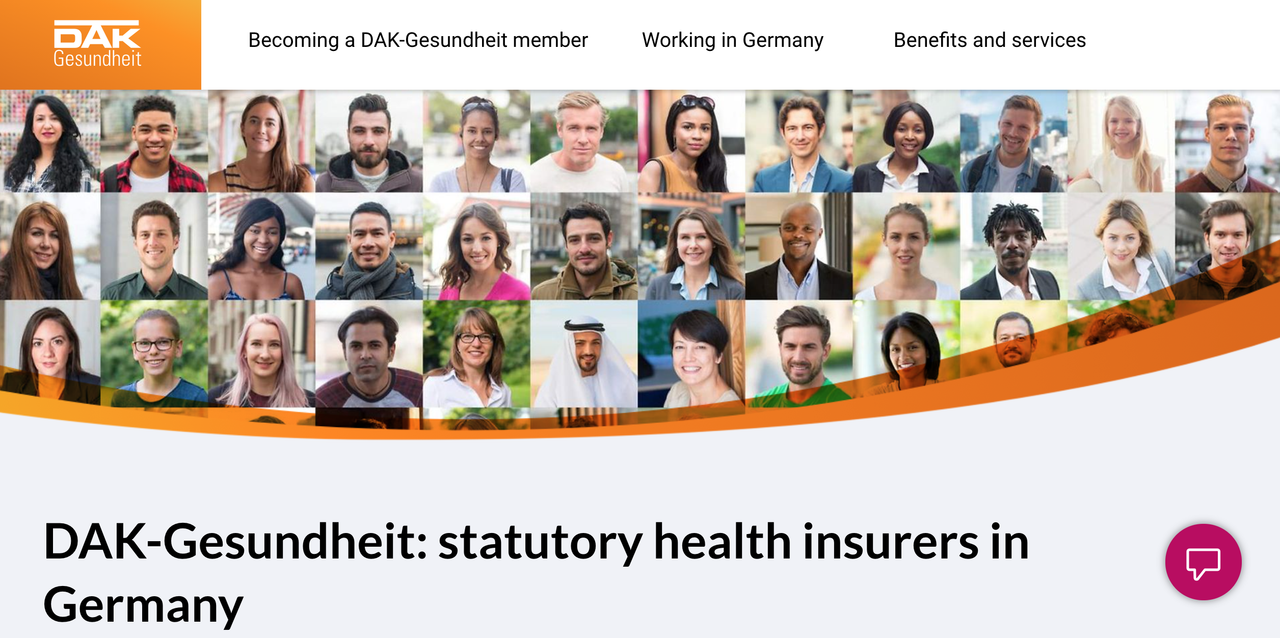Published on | Last updated on
Self-employed people in Germany are spoilt for choice when it comes to health insurance. Are you looking for health insurance for freelancers in Germany? Then read this overview of health insurances in Germany (and what might work best for you!).
Self-employed or freelancers can freely choose between public and private health insurance in Germany.
It is hard to say which type of health insurance is best for freelancers in Germany but it strongly depends on the personal, professional and family situation of the freelancer.
In this post, I have described various types of health insurance for freelancers in Germany.

1. Types of Health Insurance for Freelancers in Germany
Freelancers in Germany are subjected to compulsory health insurance. They have a choice between:
- Public health insurance / Gesetzliche Krankenversicherung (GKV)
- Private health insurance / Privat Krankenversicherung (PKV)
- Artists’ health insurance / Künstlersozialkasse (KSK)
Let’s take a look at all of them in detail.
1.1. Public Health Insurance for Freelancers in Germany
There are over 70 million people with public health insurance (GKV) in Germany. About 51 million members pay contributions. The rest are insured free of charge, for example, kids insured through family insurance.
There are different subcategories of public insurance in Germany, such as the Allgemeine Ortskrankenkasse (AOK), the Betriebskrankenkasse (BKK), the Innungskrankenkasse (IKK) and the Ersatzkasse.
Techniker Krankenkasse (TK) is currently the largest provider of statutory health insurance in Germany, insuring about 10 million people in Germany. Barmer GEK is the second biggest provider with about 9 million members. 3rd place goes to DAK-Gesundheit (6 million).
NOTE: International freelancers can get into the German public health insurance system if they have been a contributing member previously. For example, if they had public health insurance as a Master student or as a full-time employee in Germany – they can simply switch to voluntary membership as a self-employed person.
As a complete newcomer to the German health insurance system, a private provider might be your only option.
1.2. Private Health Insurance for Freelancers in Germany
Private health insurance is open to almost all occupational groups without any preconditions.
Around nine million people in Germany have opted for private health insurance (PKV). There are various factors that are taken into account for joining a private health insurance provider.
- Your age
- Your general health condition
- Your profession
- Your or your family’s medical history (This is relevant for those of you who have dependents)
- Any preexisting health conditions or certain health risks
With very flexible options, freelancers can take out a private health plan that is individual to their personal needs and their chosen benefits, including the associated costs.
Freelancers interested in private health insurance in Germany can choose between more than 40 providers and hundreds of monthly plans. It is, therefore, useful to concentrate on the offers that are tailored to the personal requirements of health insurance.
It is worth noting that even though private health insurance is advantageous for freelancers most of the time, switching back from private to statutory health insurance is very hard (except in some special cases.)
1.3. Künstlersozialkasse (KSK)
The Künstlersozialkasse (KSK) is a division of the Federal and Railway Accident Insurance. By implementing the Artists’ Social Insurance Act (KSVG), it ensures that independent artists enjoy similar protection under the statutory social insurance system as employees.
It is not itself a service provider but coordinates the payment of contributions for its members to health insurance of their choice and to the statutory pension and long-term care insurance.
Under KSK, artists only have to pay half of the contributions out of their own pockets. The KSK tops up the amounts with a subsidy from the federal government (20%) and social security contributions from companies (30%) that utilise art and journalism.
The individual monthly contribution paid by an artist to the KSK depends on their income. If this income does not exceed the minimum threshold of EUR 3,900.00 per year, the KSK cannot normally be used (The only exception is: beginners).
You can learn more about KSK, check your eligibility and how to apply for it in this detailed guide by Settle in Berlin.
Related: Do you need mental health care in Germany? Read how to get the cost of therapy reimbursed by your German health insurance provider
2. How Much Does Freelance Health Insurance Cost
The amount of the contribution to statutory health insurance depends on income. In private health insurance, on the other hand, this does not play a role. So high-earning freelancers can benefit from the lower health insurance costs of private health insurance.
2.1. Monthly contributions to public health insurance
The monthly contribution to public health insurance in Germany is determined on the basis of the monthly income of the freelancer. The average monthly contribution rate for the self-employed is 14.6 per cent of gross income (2020).
So a freelancer earning over 5000 € could end up paying up to (ca.) 750 € in health insurance each month. And that’s for a bare minimum coverage.
Even if you earn little or nothing at all a minimum contribution has to be paid.
This is because all public health insurance providers in Germany assume a monthly minimum income of around 1,038 €, even when the freelancer earns less than this threshold. This minimum is currently at around EUR 177 per month.
This makes public insurance too expensive for low-earning freelancers in Germany.
The good news is that the contribution is capped at the monthly maximum rate for public health insurance.
2.2. Monthly contributions to private health insurance
In private health insurance, monthly income does not play a role. So both low and high-earning freelancers can benefit from fair health insurance costs.
Most private health insurance providers offer modular plans with various different benefits, add ons and contribution levels. You have the freedom to choose a tariff that suits your personal requirements and monthly budget with private health insurance for freelancers in Germany.
Freelancers with a relatively low income can start with a basic tariff. They can change to a more comprehensive tariff later as their income grows.
However, those with pre-existing health issues or in an older age group can expect to pay more for their health coverage. Even if you sign up with private health insurance at a young age, your monthly contribution will get higher as you get older.
3. What are the Pros and Cons of Public and Private Health Insurance
There are some advantages and disadvantages of statutory and private health insurance for freelancers in Germany.
3.1. Public Health Insurance
| Advantages | Disadvantages |
| Free co-insurance of children up to 25 years of age | Monthly contributions depend on income |
| Calculable monthly contributions | Only basic services and standard services are available |
| You can easily switch to another GVK provider | No change to the GKV from 55 years of age is possible |
3.2. Private Health Insurance
| Advantages | Disadvantages |
| Non-income based contribution – you pay for the coverage you choose | Difficult to change the provider at a later stage |
| Better basic coverage when compared to statutory health insurance | Monthly costs add up as the insured gets older or get sick |
| It is possible to create your own individual coverage by choosing add ons or modules | Not possible to switch to the GKV from the age of 55 |
| Short waiting times at the doctor’s and for a specialist appointment | Each family member must be insured separately |
4. What is the Best Health Insurance for Freelancers in Germany?
This depends on individual health requirements as well as your monthly budget and eligibility.
Freelancers with a high income, in a younger age group and sound health, may benefit more from private health insurance.
The biggest disadvantage of private health insurance in Germany is for those with a pre-existing chronic illness or in an older age bracket. In both cases, you can expect to pay much higher monthly contributions to your private health insurance provider.
This is not the case with public health insurance in Germany, though.
Your age or health condition does not factor into your monthly tariff. In fact, there is a marginal difference between public health insurance providers in terms of standard coverage and monthly tariffs. Nearly every company charges 14% – 16% of the gross monthly income.
The monthly contributions towards public health insurance for freelancers in Germany fluctuate with income. The more you earn, the more you pay. But then, there is always a minimum amount every freelancer has to pay, around EUR 177 per month.
DAK Gesundheit:
DAK Gesundheit or DAK is one of the largest statutory health insurance providers in Germany with over 6 million members. This public health insurance company has been around for 230 years, making it one of the oldest providers in the country.
DAK is very popular in the international community because it offers its services in English, Arabic, Polish, Russian, Turkish and several other languages – as opposed to many companies that only operate in German.
Like most other insurance providers in Germany, DAK will cover the costs of your doctor visits, treatments, medications and other types of care. Although some parts of your care (i.e. special medications and treatments) might be subject to additional costs or contributions.
Anyone can apply for DAK coverage – students, employees, pensioners and self-employed people qualify for DAK’s health coverage.
As is the case with public health insurance in Germany, DAK costs are also determined by your monthly income. Generally, you can expect to pay 16.1% of your gross monthly income.
You can easily sign up online with DAK (in English) here
Are you also a freelancer working in Germany? What do you think is the best health insurance for freelancers in Germany? Let us know in the comments below.








Can you also recommend the best private health insurance for freelancers? I’m from the US and don’t qualify for public health insurance as a freelancer.
Hey! Thanks for this article. Very helpful.
Do you know how this works with unemployment benefits? I have TK and recently started doing freelance work after my angestellt Job contract ended. So for me that means for a time I can go back and forth between unemployment benefits and self-employed income.
If you know about how I could do the same with paying my health insurance, I’m all ears! Or maybe I will have to pay for insurance straight through despite where my income comes from. Could be.
Thanks for your time.
Hey there, yes, health insurance payments are mandatory even when the income from self-employment is zero. If you have not already please inform your health insurance about the changes in your employment/ income (to avoid any excessive back payments!).
I have TK (statutory) and find it almost imposible to get any support in English. They even have a special phone number for English speakers, but it works only couple hours a day or something. Not available when I need it.
Hey Pawel, I have no personal experience with TK, but that’s kinda expected from statutory insurances. They are starting to make it easier for non-German speakers to sign up with them with English forms etc, although they still have a very limited number of English speaking consultants.
I need to to thank you forr this fantastic read!!
I definitely enjoyed every bit of it.I have got you book-marked to look at new things you post…